
Experience profound calm, deeper bonds, and restful nights for mothers and babies, crafted with science and love.


![[background image] image of abstract musical notes (for a music studio)](https://cdn.prod.website-files.com/6858d8fca22231d565d35771/685a438978f3671d4a6fea55_FLORA-Prenatal%20Yoga%20Zen-8165abbe.png)
![[interface] image of software interface (for an edtech)](https://cdn.prod.website-files.com/6858d8fca22231d565d35771/685a46b3aebcb3ea34a64e59_FLORA-Maternal%20Indoor%20Scene-e12ae137.png)
![[background image] colorful classroom setting (for a preschools & daycare)](https://cdn.prod.website-files.com/6858d8fca22231d565d35771/685a46e6b2374b23f2366f5b_FLORA-Sleeping%20Newborn%20Photo-30f40b02.png)





.png)
Whether you're creating a sleep ritual, reclaiming quiet after a long day, or sharing a moment with your baby—Peace Baby is here to help you feel more connected, calm, and confident.
![[background image] colorful classroom setting (for a preschools & daycare)](https://cdn.prod.website-files.com/6858d8fca22231d565d35771/685a44a4f1c45e522432354b_FLORA-Sleeping%20Mother%2C%20Baby-51722dc6.png)
Simple, soothing sounds designed for relaxation and bonding.

Used in maternity wards, childcare centres, and homes for over two decades.
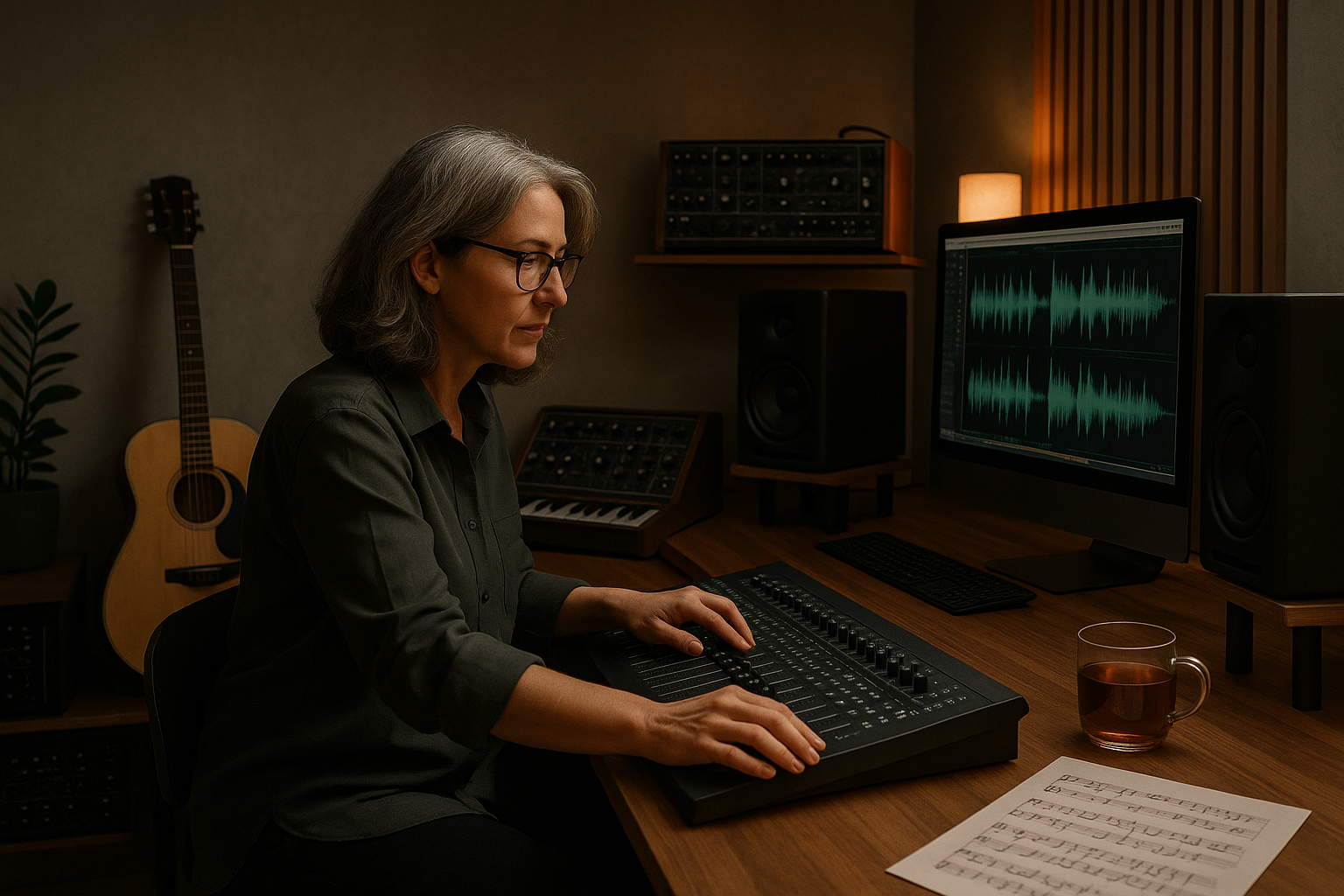
Composed in Australia using advanced electronic instruments and traditional organic instruments.
Developed from more than 12 months of music therapy research and tested with mums in their third trimester
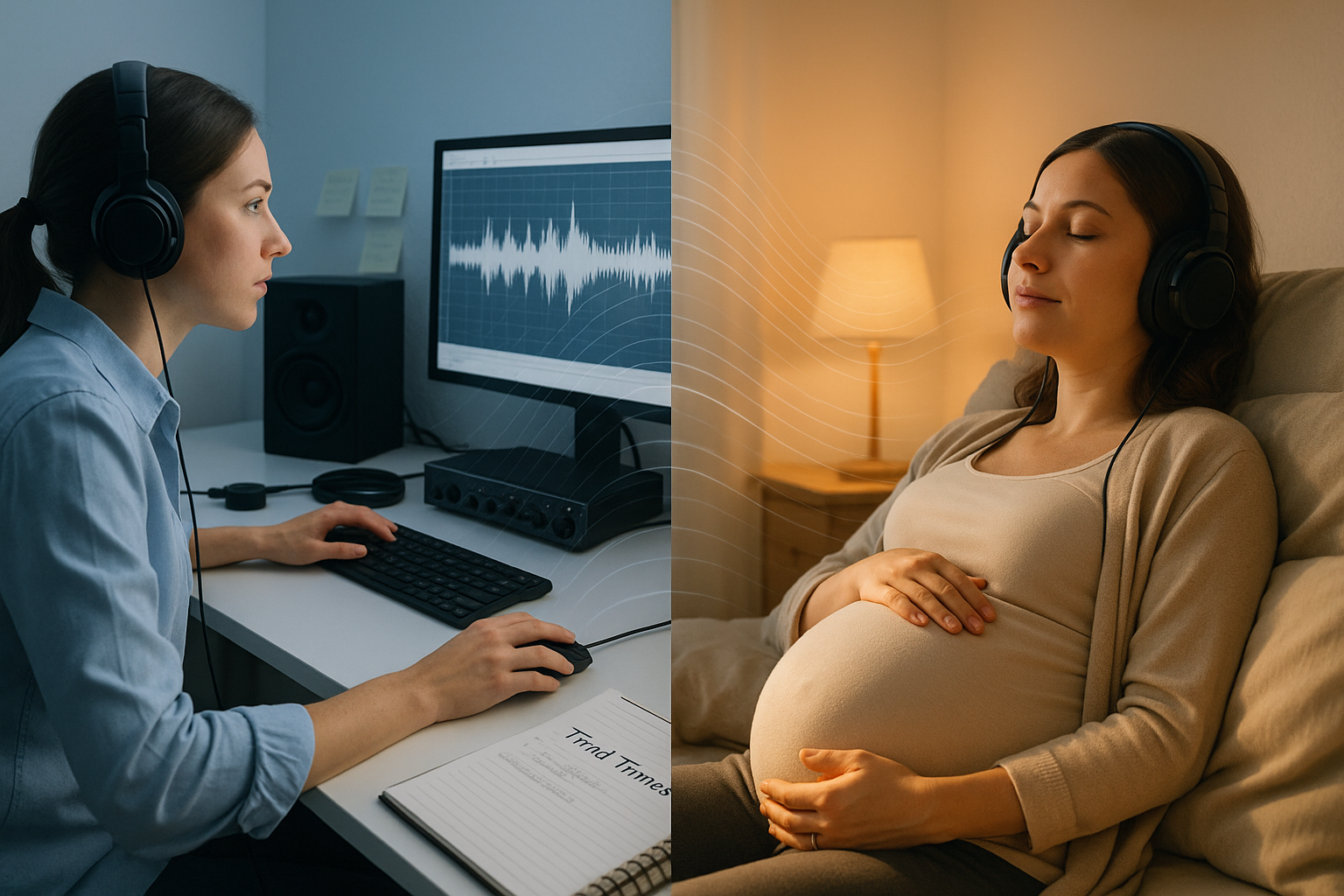
Our music incorporates natural heartbeat rhythms, mirroring maternal sounds to instantly soothe your baby.

Carefully composed, uncomplicated musical compositions designed specifically to create a tranquil environment without sensory overload.
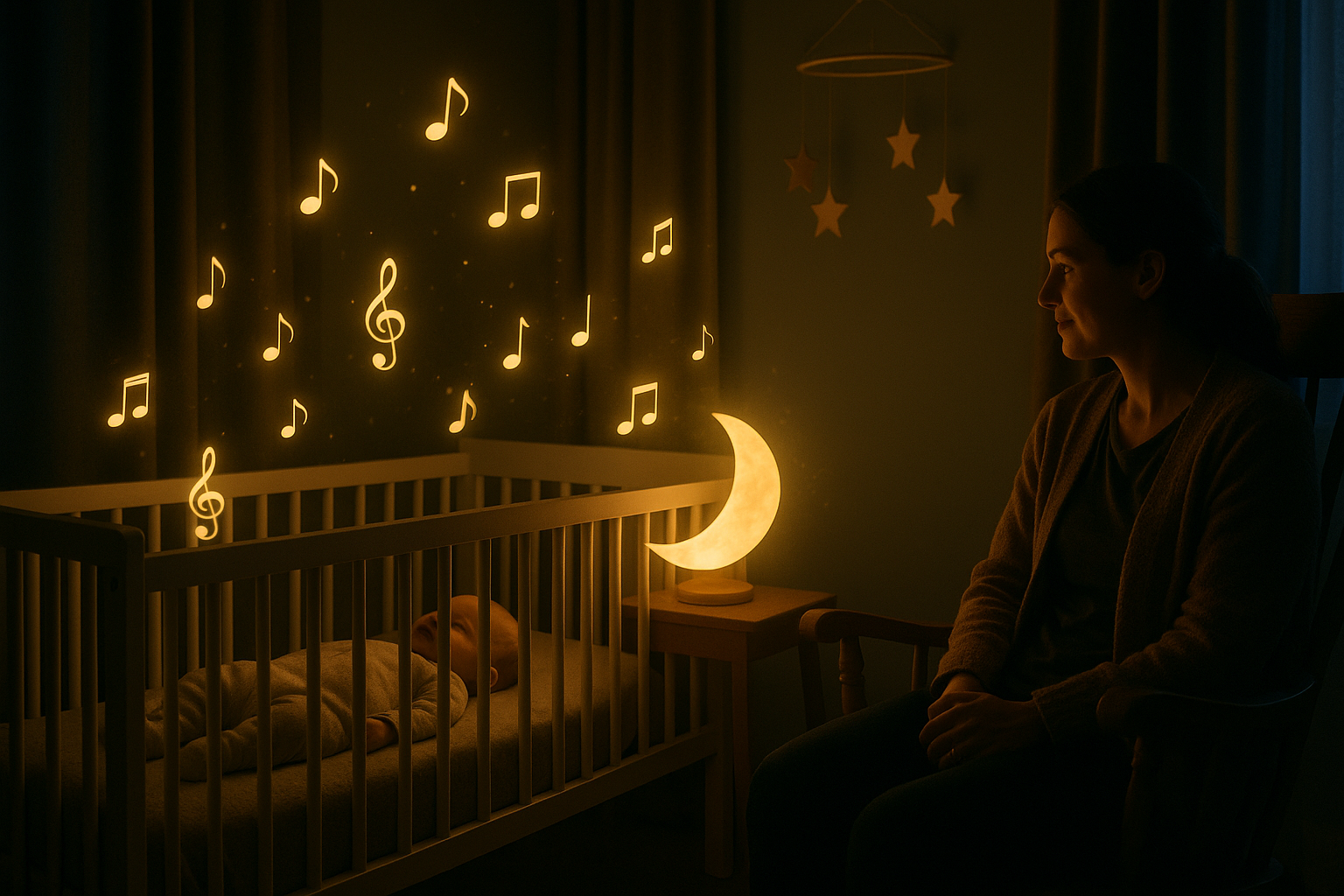
Tracks specifically crafted to enhance emotional bonding, reduce stress hormones, and improve overall mood and well-being.
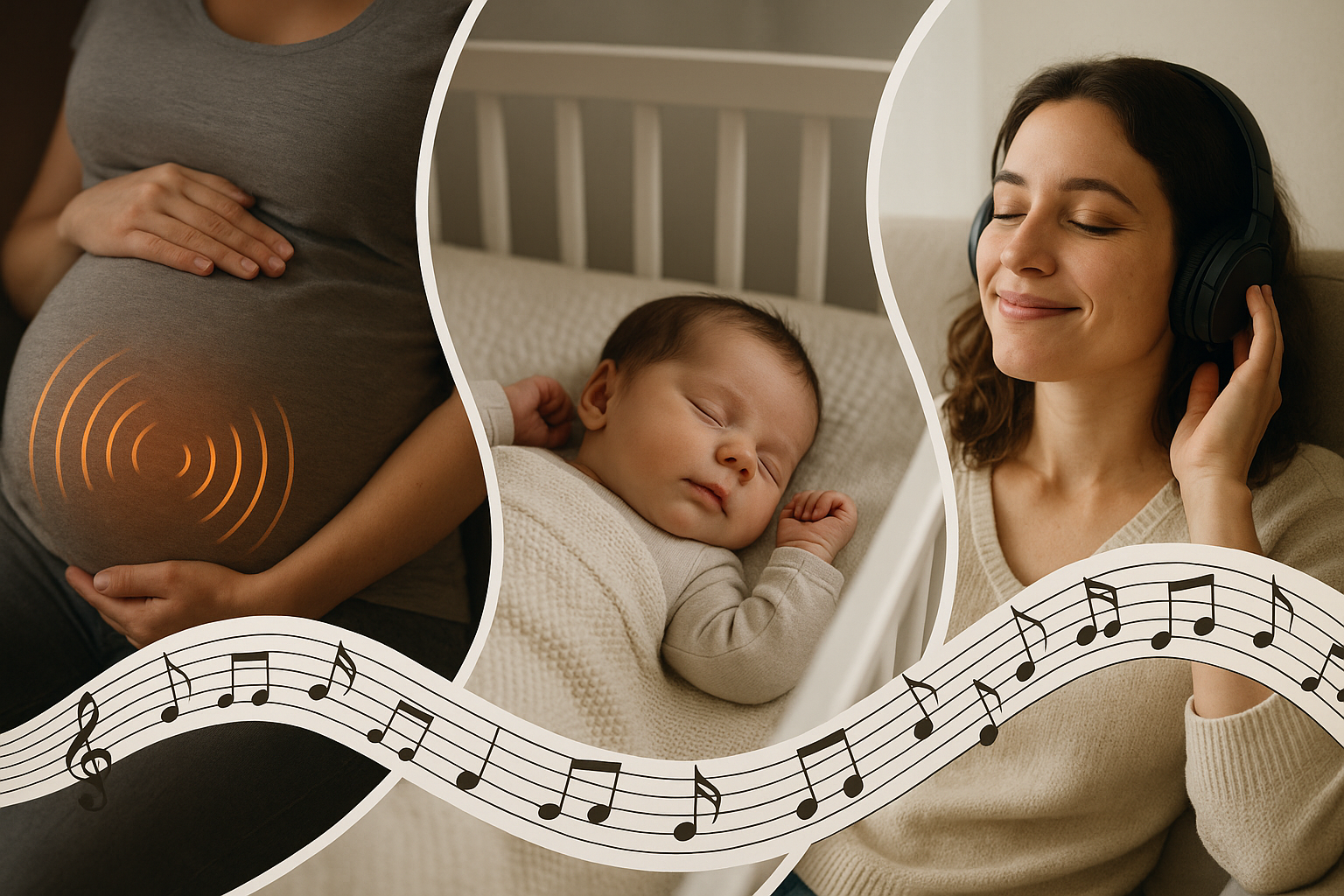
![[background image] retail environment (for a toys & game store)](https://cdn.prod.website-files.com/6858d8fca22231d565d35771/685a438978f3671d4a6fea55_FLORA-Prenatal%20Yoga%20Zen-8165abbe.png)
Unlike similar music on the market that features white noise and natural sounds, Peace Baby has been customised to the specific needs of mothers and babies during the pre-and post-birth stages.

Made in state-of-the-art studio in Australia

Sound engineered to mimic heartbeat rythm

Multi-layered depth soundtracks

Backed by extensive research

Recreates the soothing rhythms heard in the womb
Encourages bonding during pregnancy
Helps prepare baby for the transition to the outside world
Calms mum—naturally lowering stress and anxiety levels
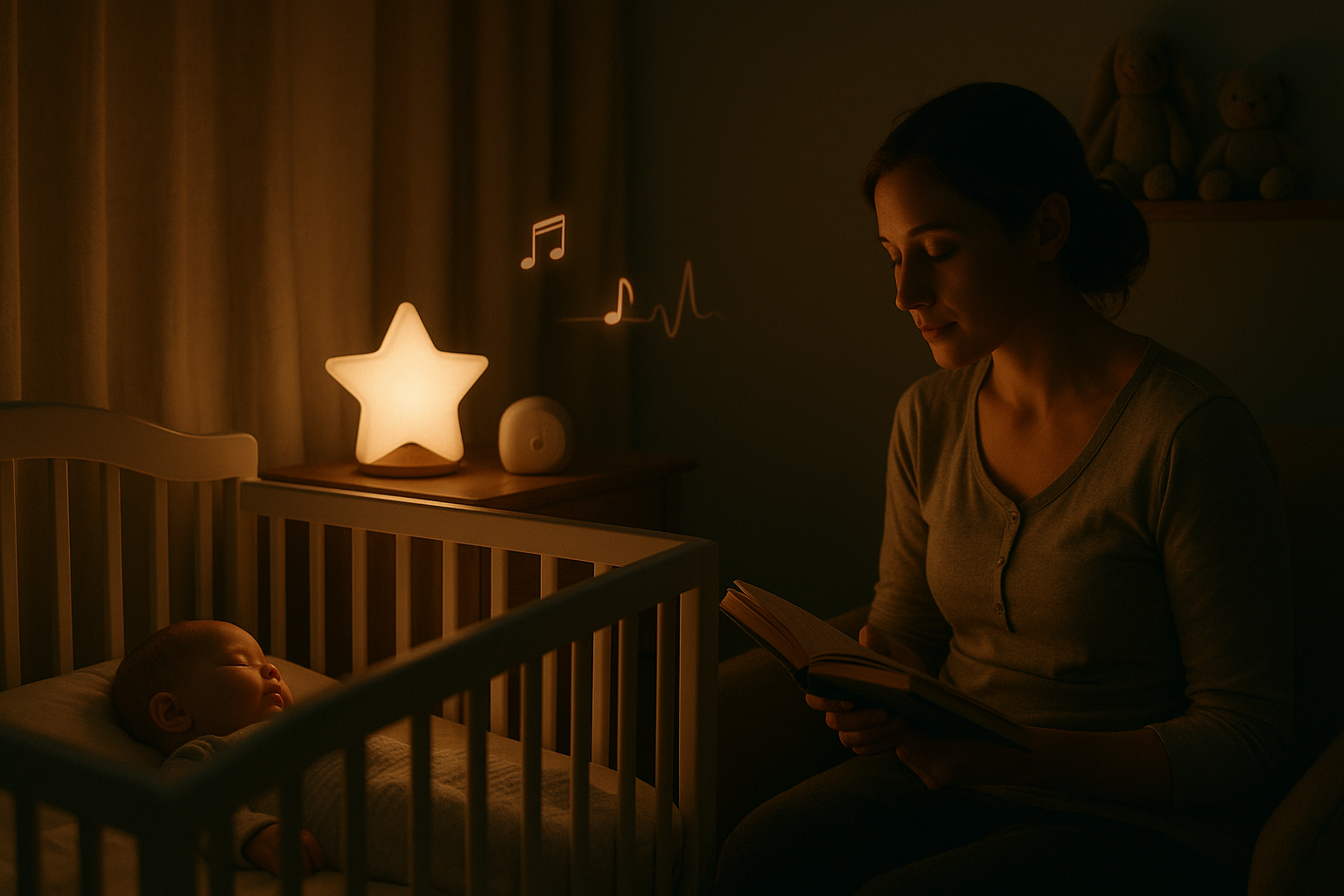
Creates a familiar, secure soundscape for newborns
Supports sleep routines and relaxation
Helps regulate heart rate and oxygen intake
Soothes both baby and parent during moments of unrest
![[digital project] image of a mobile device with a productivity app (for a productivity tools business)](https://cdn.prod.website-files.com/6858d8fca22231d565d35771/686d00b6a2d6c41668591665_pre-birth.png)
For calming connection during pregnancy.
Daily Relaxation: Play the pre-birth tracks while resting, meditating, or before bed to create a peaceful environment for both you & your baby.
Bonding Time: Place gentle hands on your belly and breathe deeply as you listen. Visualise connecting with your baby through sound.
Stress Relief: Use the music to reduce anxiety and tension, especially helpful during moments of restlessness or emotional overwhelm.
Routine Support: Try playing the same track at the same time each day to build a comforting sound ritual your baby will recognise after birth.
![[digital project] image of a mobile device with a productivity app (for a productivity tools business)](https://cdn.prod.website-files.com/6858d8fca22231d565d35771/686d00b6442119d8017ebf22_post-birth.png)
To soothe baby & support emotional regulation.
Settling & Sleep: Use during nap time or bedtime to help lull your baby into a calm, restful state.
Soothing Fussy Moments: Play when your baby is unsettled or overstimulated, especially helpful during witching hours.
Create a Calm Environment: Use in the background during changing, bathing & cuddling to create a gentle, consistent atmosphere.
Parent Reset: Listen alongside your baby to support your own emotional calm and recovery during early postpartum days.
![[digital project] image of a mobile device with a productivity app (for a productivity tools business)](https://cdn.prod.website-files.com/6858d8fca22231d565d35771/686d00b60ba5ca4c6e7718f6_breast-feeding.png)
Designed to support bonding and milk flow.
Feeding Time Ritual: Play the breastfeeding track each time you nurse to signal a sense of routine and comfort.
Let-Down Support: Calming rhythms can assist with milk let-down and reduce tension in the body.
Night Feeds: Keep volume low for nighttime feeding to soothe both you and your baby back to sleep.
Bottle Feeding Too: Even if not breastfeeding, the tracks can support bonding during bottle feeds or skin-to-skin cuddles.

Renowned Australian Hospitals
Leading Childcare Centres
Early Education Providers
Top Parenting Influencers
Award-Winning Parenting Blogs
Music therapy is the use of sound to incite a particular change in mood or behaviour. In Peace Baby’s case, music is used to help create a peaceful, stress-free and nurturing environment for mothers and babies.
Music therapy can help create a familiar and secure environment for babies. Research suggests music can be particularly soothing if played during the last trimester of pregnancy,as it helps create a familiar environment for the child once it is born. In the United States, music therapy is used by some hospitals as a stress reduction technique for premature infants. Music therapy has been credited for helping stabilise premature babies’ heart rate and oxygen intake, which in turnhelps the baby grow. Both Peace Baby Collections feature the soothing, rhythmic sound of a resting heartbeat and special sounds a baby is likely to hear inside the womb as well as once it is born.
Yes, the research findings mentioned in question 2 were presented at the 7th International Music Medicine Symposium held on Monday 5 October 1998 at the Melbourne University Faculty of Music.
It is widely agreed among paediatricians, naturopaths and mothers alike that ‘relaxation time’ is essential for expectant mums, particularly towards the end of the pregnancy and immediately post birth, a period which for some women – especially first time mums – can be a highly stressful time. Feedback in relation to Peace Baby® indicates that women feel emotions such as stress and anxiety can be passed on to a baby both in the womb and after birth. As such, dedicated relaxation music, such as Peace Baby is important from both a health and lifestyle perspective.
Research suggests that babies respond best to simple sounds and lullabies rather than complex, classical arrangements that can overload their senses. As such, Peace Baby was produced using a blend of traditional organic instruments, including the acoustic guitar and human voice, combined with today’s most advanced electronic instruments. The result is a collection of warm, ethereal tracks that resonate with both mother and child.
Yes, in January 2003 Peace Baby commissioned DDB Strategic Research to undertake a study to gauge the effects of Peace Baby. The sample group, which included a diverse cross section of mums in the third trimester of their pregnancy, provided extremely encouraging feedback. Specifically, Peace Baby was found to:
“Create a calm and soothing environment,” when played as background music;
“Help clear your head of everyday things,” and “allow your mind to wander,” when played at the end of a long day or on the way home from work;
“Be an excellent gift that would help you recognise the baby is already a person” and “provide encouragement for getting to know your baby,” when played pre-birth;
“Provide a comfortable and familiar surrounding that may help you establish a sleeping routine,” once baby is born and
Help the mother calm down: “It can be pretty stressful having a new baby so perhaps you could use Peace Baby to get yourself calmed down!”
Over 95 per cent of mums said they would continue to play Peace Baby in their child’s nursery post-birth, as they felt it would be an excellent soother for an unsettled baby or a baby trying to go to sleep.
Unlike similar music on the market, Peace Baby has been customised to the specific needs of mothers and babies during the pre-and post-birth stages. While the music seems to have an unstructured and carefree nature, it has been carefully crafted to appeal to a very specific target audience. Whereas competing products feature more complex classical arrangements, Peace Baby prefers gentle lullabies and angelic tones which research suggests babies prefer.
Dr Jane Standley (Professor of Music Therapy at Florida University), VIIth International Music Symposium, Monday 5 October 1998, Melbourne University Faculty of Music.
Dr Fred Schwartz (Anaesthetist at Piedmont Hospital Georgia), VIIth International Music Symposium, Monday 5 October 1998, Melbourne University Faculty of Music.